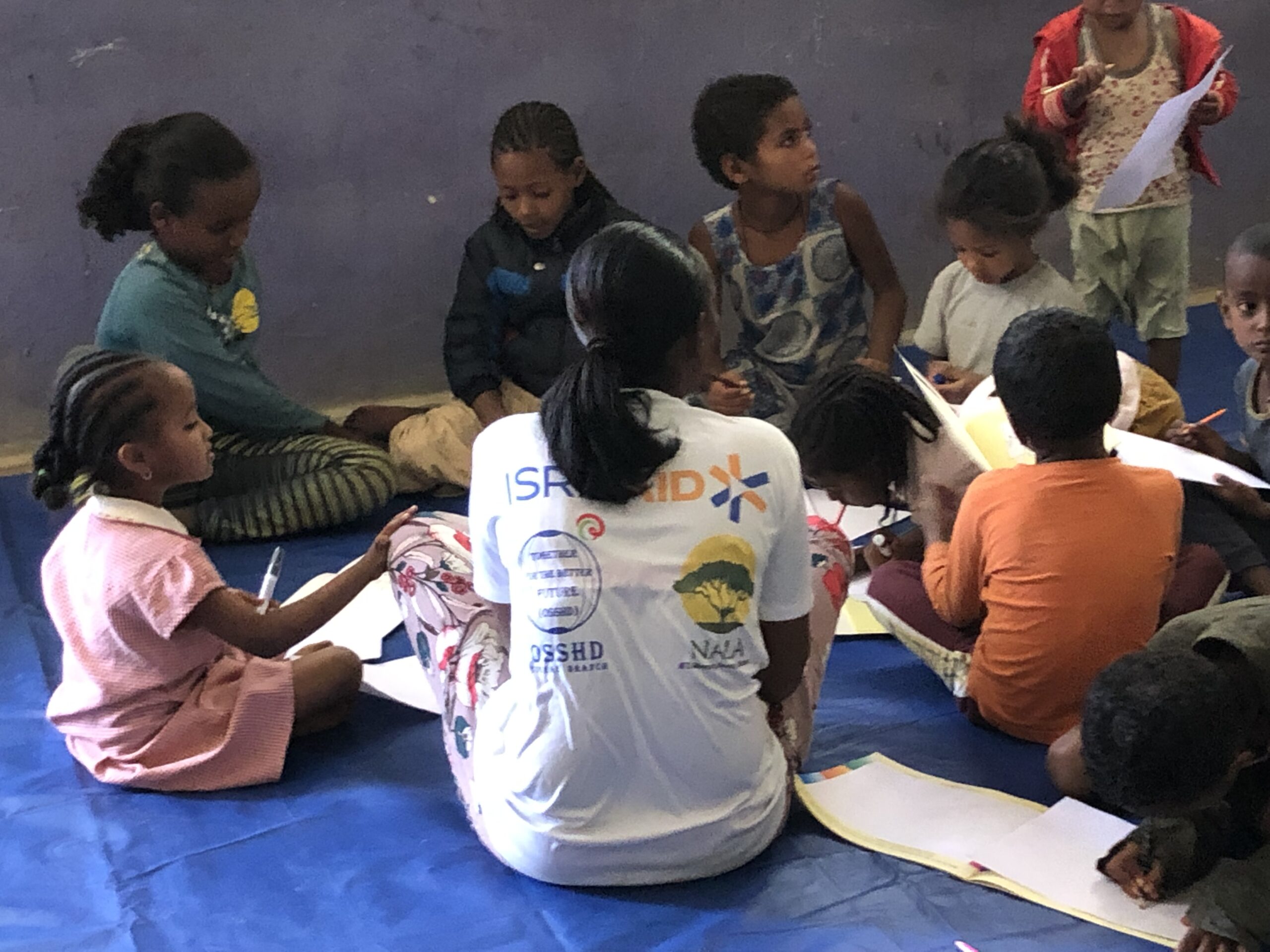‘When conflict broke out in the Region in November 2020, it was an absolute priority for us in NALA to continue to support our teammates and communities with health, WASH and psychosocial support. With our incredible team and partners, specifically OSSHD on the ground and IsraAid remotely, this became a reality. One of which I am immensely proud.’ Michal Bruck, NALA CEO
Central to NALA’s operations, Tigray the Northern Region of Ethiopia, is where, together with OSSHD and community partners, many of NALA’s most innovative ideas were developed, including those that led to the elimination of intestinal parasites in both Mekelle and Adwa, two central cities. When conflict broke out in the Region in November 2020, an estimated 5 million people required urgent assistance, with over 2 million internally displaced people (IDP) within the Region. Banks and communication systems were shut down, and electricity was erratic, preventing essential services from operating. Through the team on the ground in Tigray, with the support of community and international partners, NALA pivoted its work to rapidly address the needs on the ground.
Operating under challenging conditions, the team worked tirelessly to support the community with psycho-social support, water, sanitation and hygiene (WASH) equipment, food, and non-food essential items (NFIs) including blankets.
In partnership with IsraAid, the psychosocial support program worked to respond to the protection needs of children in IDP shelters in Mekele, the capital of Tigray, as well as give respite to mothers. A total of four child-friendly spaces (CFSs) were established in shelters, serving approximately 600 children aged 5-18 on a daily basis. Offering both psychosocial support and educational content, the CFSs were welcomed by the IDP community. Complementing the psychosocial support program, the basic needs of the community were met through food and NFI distribution programs. These included bedding and COVID-19 protective materials, with the elderly, pregnant and lactating women, and chronically ill, and disabled people prioritized. Finally, with enormous pressure on WASH infrastructure, and shortages of safe water for both drinking and basic hygiene, the NALA team worked to distribute water alongside basic hygiene materials for reducing disease prevalence, with a focus on water-borne diseases.
With peace in the Region declared in late 2022, access to Tigray was opened, and NALA has been working with the government and community to determine the highest priorities in the Region. With the needs high, including an emphasis on widespread diarrheal disease and trachoma, NALA will continue to work to support the host and IDP communities, alongside our local and internal partners.
